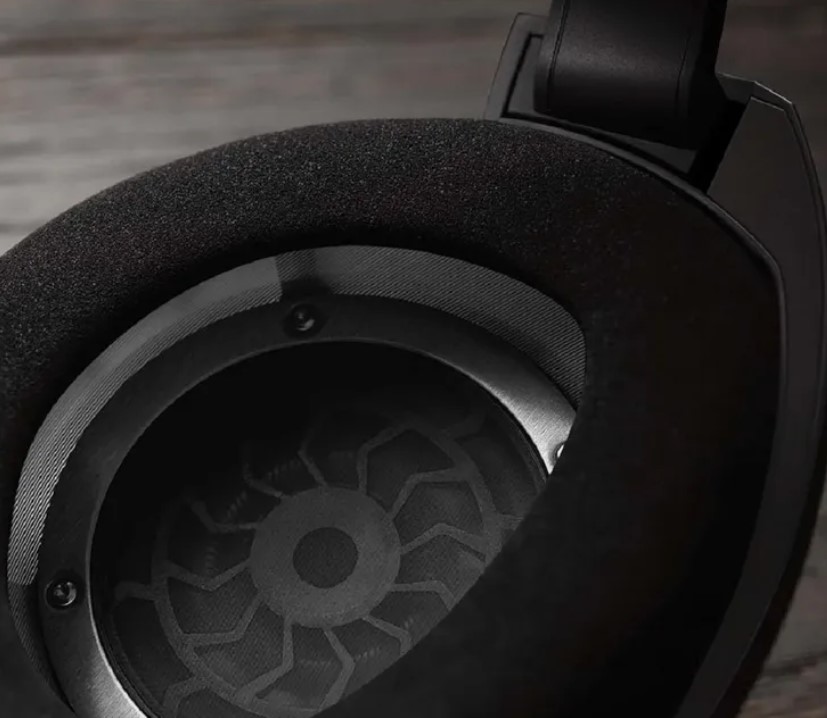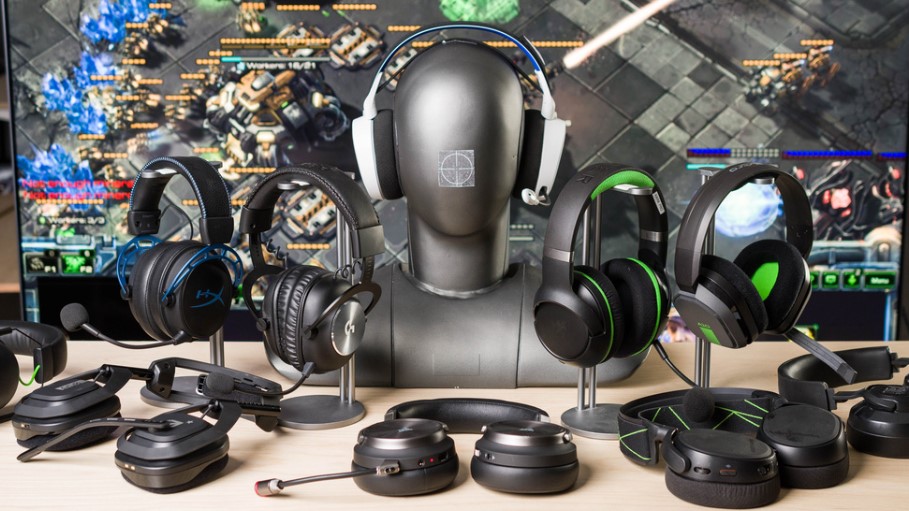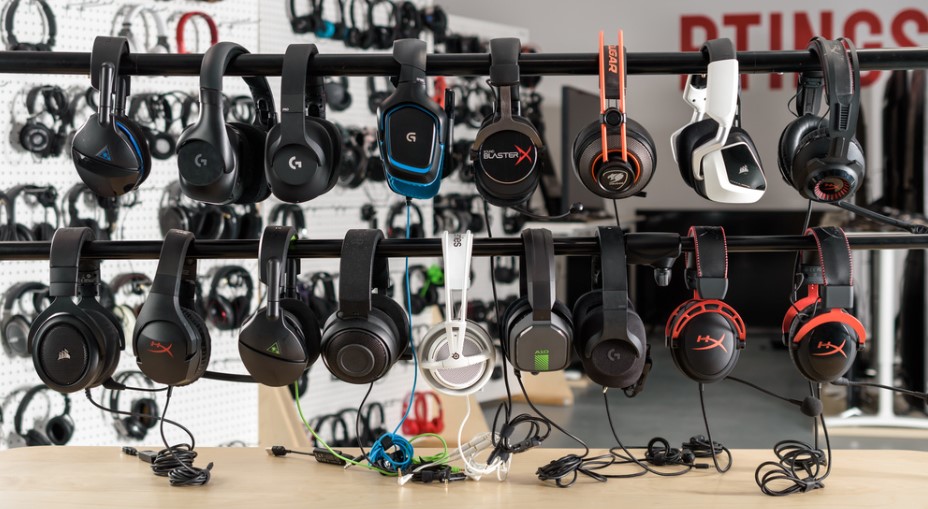Gamers of all levels understand the importance of having the right gear to enhance their gaming experience. One essential accessory that can significantly improve your gameplay is a gaming headset. A gaming headset provides high-quality audio, enables communication with teammates, and blocks out external noise to give you an immersive gaming experience.
However, with a plethora of options available in the market, choosing the right gaming headset can be pretty confusing, especially for beginners. A good gaming headset should provide excellent audio quality and be comfortable, durable, and compatible with the platform you are using. In this beginner’s guide, we will walk you through the key factors you should consider when choosing a gaming headset so that you can elevate your gaming experience to the fullest.
Sound Quality
When it comes to gaming headsets, one of the most important factors to consider is the sound quality. A good gaming headset should be able to provide you with high-quality audio that makes it feel like you’ve been teleported into the game itself.
There are several elements that contribute to sound quality in a gaming headset, including frequency response, drivers, and audio processing technologies. Frequency response refers to the range of audio frequencies that a headset can reproduce, with a wider frequency response resulting in a more dynamic and realistic sound. Drivers are the components that convert electrical signals into sound waves, and larger drivers can typically produce more powerful and nuanced audio.
In addition, many gaming headsets come with audio processing technologies such as virtual surround sound, noise cancellation, and equalization settings. Virtual surround sound can simulate a multi-speaker setup, while noise cancellation can block out distracting external sounds. Equalization settings allow you to adjust the balance of different audio frequencies to your personal preferences.
Comfort

Comfort is an essential factor to consider when choosing a gaming headset, as you’ll likely be wearing it for extended periods. A poorly fitting headset can cause discomfort, headaches, and neck pain. Therefore, looking for a headset that fits comfortably and feels light on your head is essential.
One of the most critical comfort aspects is the padding on the ear cups and headband. Look for a headset that has ample padding on the ear cups, as they will sit directly against your ears. The headband should also have enough padding to distribute the headset’s weight evenly across your head. Memory foam padding is an excellent choice, as it molds to your head’s shape and provides a comfortable fit.
The weight of the headset is another critical factor to consider. If the headset is too heavy, it can cause strain on your neck and shoulders. Look for a headset that feels light on your head but is still sturdy enough to be durable.
The size of the headset is also important. Look for a headset that fits your head size comfortably. Some headsets have adjustable headbands or ear cups to accommodate different head sizes. It’s crucial to try on the headset before purchasing it to ensure a proper fit.
The type of ear cups also affects comfort. There are two types of ear cups: over-ear and on-ear. Over-ear ear cups sit around your ears, providing a more immersive experience and better noise isolation. On-ear ear cups rest on your ears, which can cause discomfort after extended use. Choose the type of ear cups that feel most comfortable to you.
Lastly, consider the material of the headset. Look for a headset with high-quality materials that feel soft and comfortable against your skin. Leatherette and breathable mesh materials are excellent choices for comfort.
Microphone Quality

Microphone quality is crucial in choosing the right gaming headset, especially if you’re into online and multiplayer gaming. A good microphone is vital for clear communication with teammates and ensuring that your voice is transmitted accurately during online gaming sessions.
Some things you should look at when judging the microphone quality of a potential gaming headset are directionality, noise cancellation, sensitivity, frequency response, and durability. A unidirectional microphone is the best option for gaming, as it reduces background noise and ensures that your voice is clear and focused.
Background noise can be a significant problem when using a microphone, especially in noisy environments. Microphones with noise cancellation technology can eliminate background noise and ensure your voice is transmitted clearly.
The sensitivity of a microphone refers to its ability to pick up quiet sounds. For gaming, a moderately sensitive microphone is usually sufficient. The frequency response of a microphone is the range of frequencies it can pick up. A wider frequency response means that the microphone can pick up a broader range of sounds, which can be helpful for gaming, as there are a variety of sounds and frequencies to pick up.
Finally, it’s essential to choose a durable gaming headset with a microphone built to last. Look for microphones with sturdy construction and high-quality materials, as well as those that are detachable and replaceable in case they become damaged.
Compatibility

Not all headsets are compatible with every gaming platform or device. Before purchasing, you must ensure that the headset you choose will work with your gaming setup. Headsets designed for PC gaming may not be compatible with consoles such as PlayStation or Xbox. Similarly, headsets designed for consoles may not work with PCs. Some headsets are designed to work with multiple platforms, so check the compatibility information before purchasing.
Next, consider the connection type. Most gaming headsets use a standard 3.5mm audio jack, which can be plugged into a variety of devices, including PCs, consoles, and mobile devices. However, some headsets use USB or wireless connections, which may limit compatibility with specific devices. USB headsets are generally designed for PCs, while wireless headsets may require a particular receiver or be compatible only with certain consoles.
It’s also important to check the system requirements for any software or drivers that may be needed to use the headset. Some headsets may require specific software or drivers to function properly, which may not be compatible with all operating systems or devices. Check the manufacturer’s website for information on system requirements before making a purchase.
Price

The most obvious factor you must consider when choosing a gaming headset is price. While there are budget-friendly options available, higher-priced headsets often offer better quality and features.
- Entry-level gaming headsets can range from around $20 to $50. These headsets typically have basic features and may be wired or wireless. They may also have lower-quality sound and microphone capabilities.
- Mid-range gaming headsets can range from around $50 to $150. These headsets often offer better sound quality, noise cancellation features, and more comfortable designs. They may include additional features such as RGB lighting or customizable sound profiles and aesthetics.
- High-end gaming headsets can range from around $150 to $300 or more. These headsets are designed for serious gamers and often offer top-of-the-line sound quality, noise cancellation, and comfort. They may also include advanced features such as surround sound, EQ customization, and advanced microphone technology.
Conclusion
After considering key factors such as comfort, sound quality, and price, choosing the right gaming headset ultimately comes down to your personal needs and preferences. For example, if you play first-person shooters, you may prioritize sound quality that allows you to hear subtle details such as footsteps and gunshots.
On the other hand, if you play multiplayer games, you may want a headset with clear and accurate communication capabilities.
Gaming Headset FAQs
What features should I look for in a gaming headset?
When looking for a gaming headset, consider the following features:
- Sound quality: High-quality audio with a wide frequency range (20Hz-20kHz) and a balanced sound profile is crucial.
- Comfort: Look for adjustable headbands, comfortable ear cups, and lightweight design for extended gaming sessions.
- Microphone: A noise-cancelling microphone with clear audio transmission is essential for in-game communication.
- Wired or wireless: Choose between wired (usually more affordable and no latency) or wireless (greater freedom of movement) depending on your preference.
- Surround sound: 7.1 or 5.1 surround sound options can enhance your gaming experience, providing better positional audio.
- Compatibility: Ensure the headset is compatible with your gaming platforms, such as PC, consoles, or mobile devices.
- Build quality and durability: Opt for a headset with sturdy materials and a reliable design to withstand long-term use.
How to choose gaming headsets?
To choose a gaming headset:
- Determine your budget.
- Decide between wired or wireless connectivity.
- Research the compatibility with your gaming platforms.
- Compare sound quality, comfort, and build quality of different models.
- Read reviews from reputable sources and user experiences.
- Test the headset, if possible, for comfort and sound quality before purchasing.
What Hz should I get for gaming headset?
A gaming headset should ideally have a frequency range of 20Hz-20kHz, which covers the entire audible spectrum for human hearing. This will ensure that you can hear both low and high-frequency sounds in-game, providing a more immersive experience.
What is the difference between 7.1 and 5.1 gaming headset?
The main difference between 7.1 and 5.1 gaming headsets lies in their surround sound capabilities:
- 7.1 surround sound: Features eight audio channels, with seven speakers and one subwoofer. This configuration provides a more precise and immersive audio experience.
- 5.1 surround sound: Offers six audio channels, with five speakers and one subwoofer. While still delivering a quality surround sound experience, it is less precise compared to 7.1.
How do I know if my headset is good quality?
To determine if your headset is good quality, consider the following factors:
- Sound quality: Listen to a range of audio, including in-game sounds, music, and voice, to assess the clarity, balance, and detail.
- Comfort: Wear the headset for an extended period to ensure it remains comfortable over time.
- Microphone performance: Test the microphone to evaluate its clarity and noise-cancelling capabilities.
- Build quality: Examine the materials and construction to ensure durability and reliability.
- Reviews and recommendations: Research user reviews and professional opinions to gauge the overall performance and quality of the headset.
What is most important for a gaming headset?
The most important factors for a gaming headset include sound quality, comfort, microphone performance, compatibility with your gaming platforms, and build quality. These aspects contribute to an immersive gaming experience, clear communication, and long-lasting performance. Personal preferences, such as wired or wireless connectivity and surround sound options, should also be considered.



